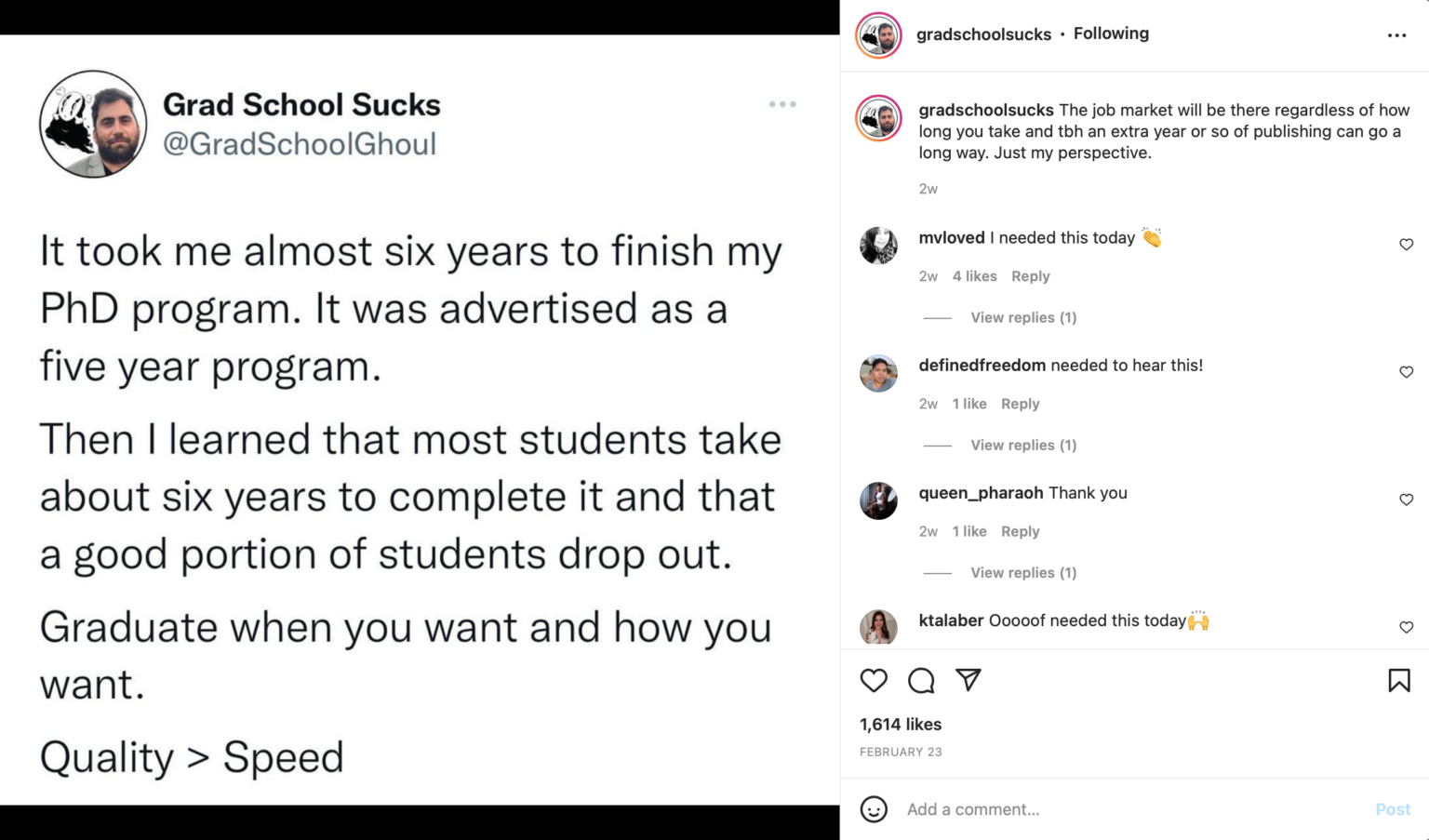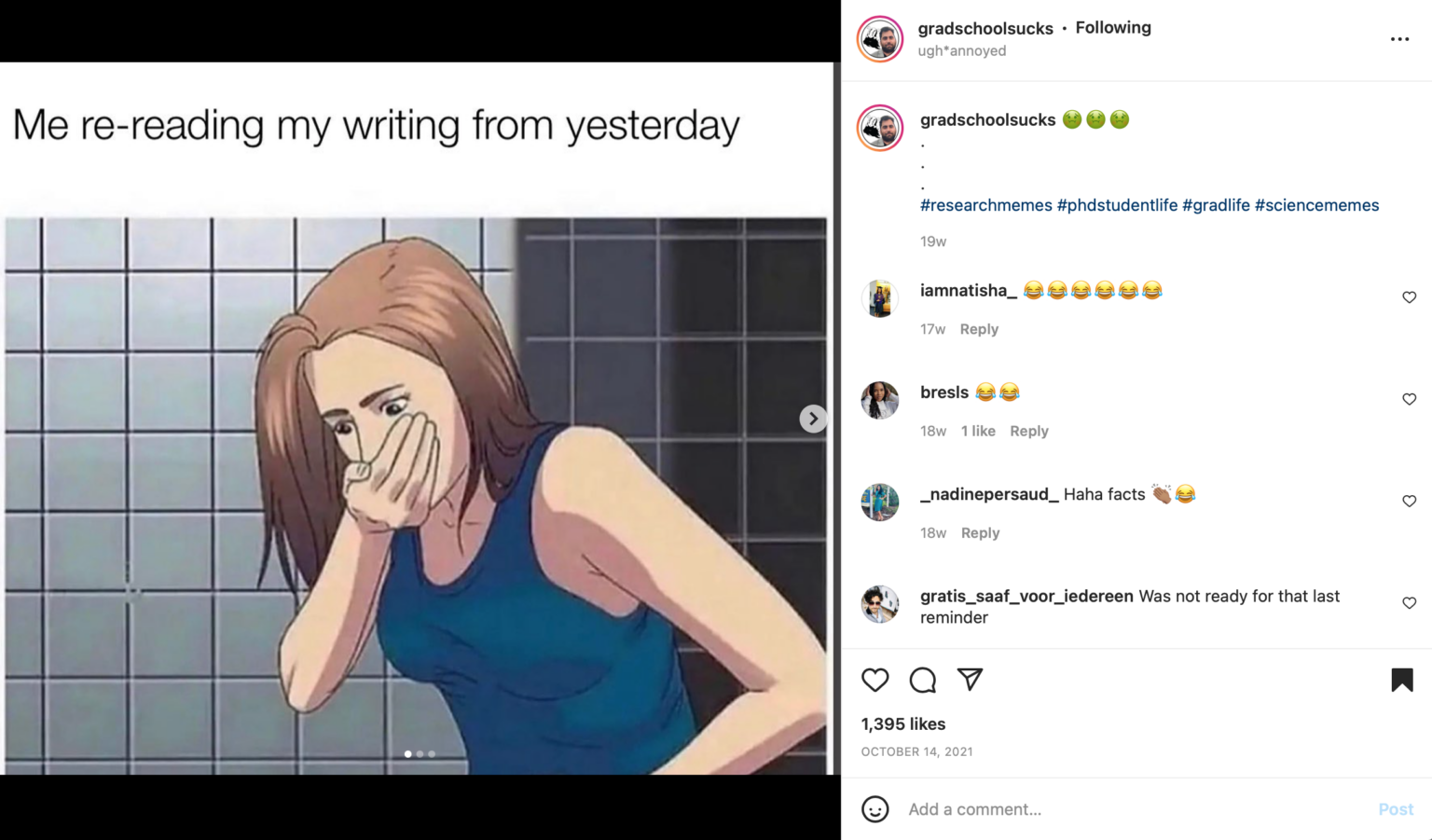~ The meme as community building medium
I only want someone to explain Deleuze to me
The essay explores the potential of the meme as a community building medium among scholars in the Instagram subcategory called Theorygram. The text is structured around three analogies that help analyze the possible community building abilities:
The meme as an amplifier ~The meme as a kaleidoscope ~ The meme as a walking stick
Do memes have the ability to popularize theory? Can a meme offer an extended view or even a different perspective in academic discourse? Can memes offer a support system in the daily academic struggle like procrastination, imposter syndrome, and working conditions?
Theorygram is a term for Instagram channels that post or repost memes that deal with theory. It is a specific category of memes that engage with critical theory, philosophy, art, and the everyday struggles of academic work. When I first started scrolling through Theorygram while working on my master thesis it felt like I was part of a community of people with similar experiences. I wasn’t engaging with them personally, but the content spoke to me and so did the comments other users left below the posts. It was a relief to me when I realized that other people also struggle with A thousand Plateaus by the two philosophers Deleuze and Guattari. In fact, so many people struggle with these authors’ work that it got memetic. People around the world are complaining in a humorous way about these texts that they are supposed to read and understand. But what was the effect of that realization? Will it help us understand the text? Or will we give up – why should we carry on with this apparently unreadable text? Or will it empower us to keep on trying because we’re not alone in this?
More and more of our cultural and intellectual interactions happen online. Even more so due to the covid pandemic, traditional learning environments like classes, exhibitions, study groups etc. are now remote. Learning, studying, and sharing our knowledge with others happens online and in front of a screen on different platforms and programs.
In this essay I will talk about the potential of the meme as a community building medium among scholars and auto-didacts1. Memes appear and are exchanged on different platforms. I focused on Instagram to look at how content creators and users work with the material. I chose channels that mostly post original content and that I personally appreciate. I will examine three different community building abilities that these memes could instigate. The three categories are described in the following analogies:
The meme as an amplifier refers to the ability to challenge the sovereignty of traditional academic discourse. By spreading theory and making the knowledge more approachable, the amplifying meme makes it more accessible to people outside of academia or people who weren’t necessarily interested in theory before.
The meme as a kaleidoscope looks at the meme as a queering2 and transformation method of theory and of academia as an institution. It refers to the ability to give us a different perspective on a topic or introduce us to new references to expand our syllabus.
The meme as a walking stick refers to memes that reflect on or joke and complain about the challenges of working as a scholar. This sense of community – the realization of not being the only one who struggles, – offers them a walking stick to hold on to.
I gathered texts, conducted interviews, and collected statements about the potential of these memes and the channels on which they were posted. I will parallel these statements with my own observations.
The meme as an amplifier
Do memes have the ability to popularize theory? Can memes help people understand a text or a concept? Can memes dismantle the exclusivity of academic discourse?
To answer these questions, I first want to look at Liz Laribees Instagram3 channel @savedbythebellhooks. Laribee creates memes using bell hooks quotes and images from the 90ies tv show Saved by the Bell.
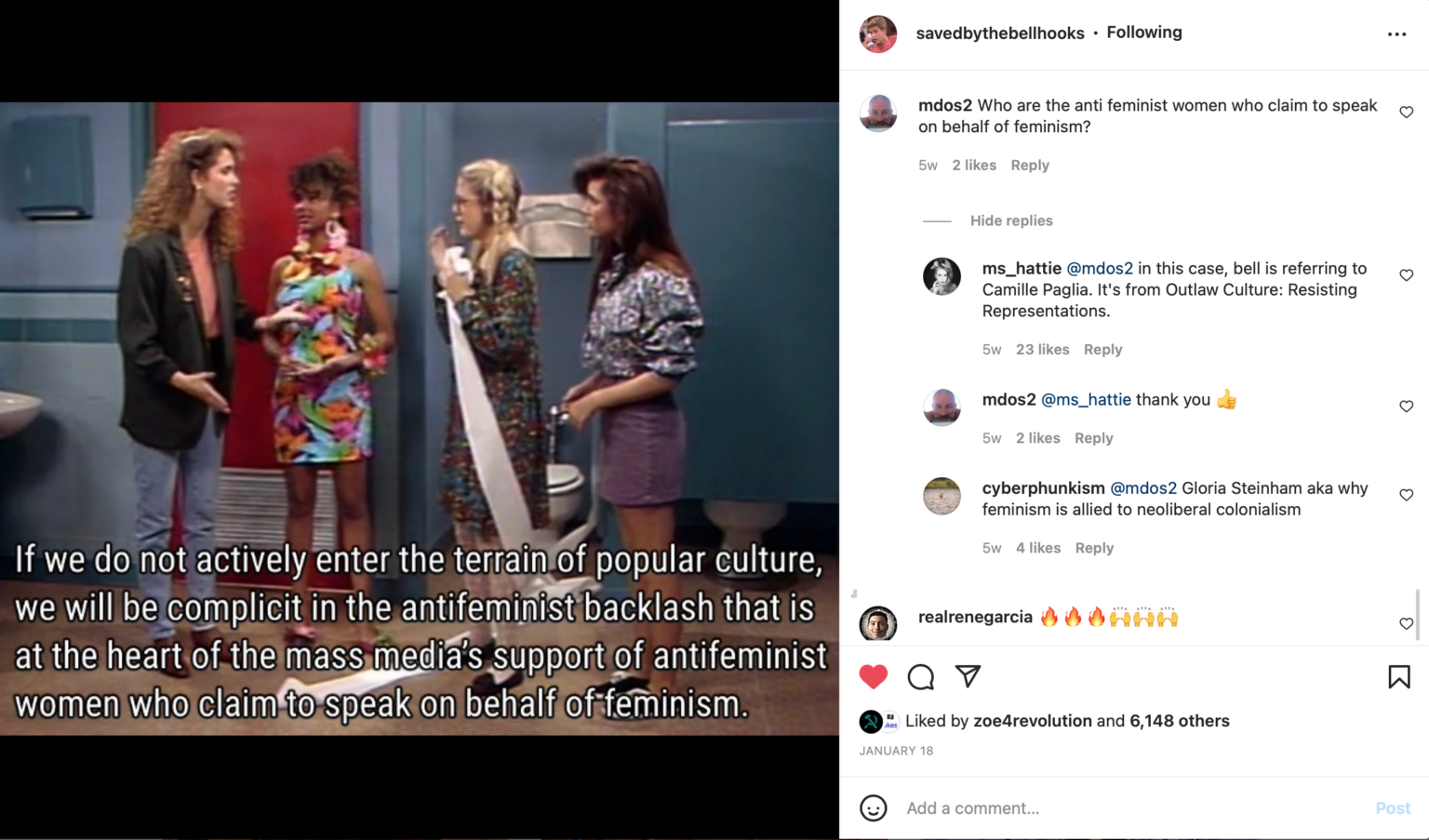
Figure 1: Since I haven't read the source text Outlaw Culture: Resisting Representation it was interesting to explore the informative potential of this meme. The user @mdos2 asks in the comment section to who bell hooks is referring to – I asked myself the same thing. User @ms_hattie, who apparently knows the essay, shared the reference. @cyberphunkism then expands with a personal view. It can give you a lead for a google search, but to get to a meaningful impression you need to engage further with the content. Source: https://www.instagram.com/p/CY4HnZTrmG4/
In an essay on @savedbythebellhooks the scholar Kyle Larson analyzes the channels’ mashup and remix techniques. He writes about how the “tension and paradox”4 created by the juxtaposition of two different cultural artifacts can be powerful to mediate a concept. He argues that this approach has a didactic function since the absurd contrast between the familiar pop cultural reference and the theory quote exaggerates the argument. Popular culture acts as a “vehicle” that attracts people with a familiar image that they associate with fun and then delivers a complex statement or thought. The bell hooks quotes as well as the Saved by the bell images are taken out of context. Some users might be familiar with the original work, but others won’t have read bell hooks or seen the show.
Let’s look closer at the @savedbythebellhooks channel. The content becomes more digestible and can be consumed and scrolled through much faster than the dozen books which are referenced in the posts. Some people may have trouble reading big bodies of texts and they are grateful for a super strongly boiled down version. But the educational value of these image-text-products is still unclear. Can someone learn from these memes? I’d say yes; a person could discover bell hooks via this channel and become interested in her writing . But could someone learn something about her actual thoughts and ideas by simply seeing these memes? That one is harder to assess. It resembles reading only headlines in a newspaper. You might learn of something but not about it. You likely need to understand the basics of some similar concepts to be able to grasp a theoretical work simply by reading memes. Even understanding a sarcastic comment on something requires deeper knowledge of the topic. Can someone who isn’t familiar with either the show or the author even enjoy the humor in the statement?
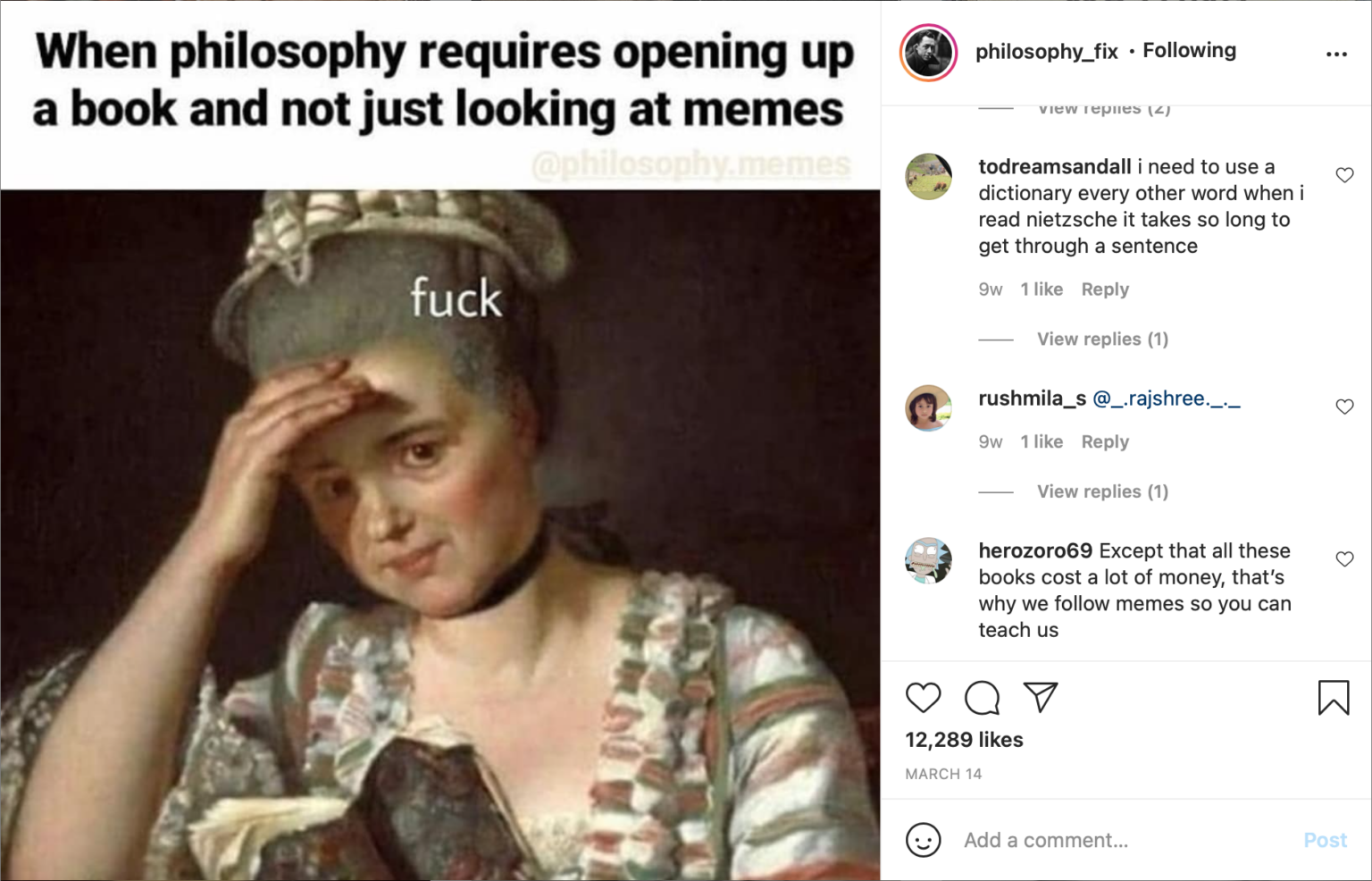
Figure 2: Theorygram is aware of the fact, that simply looking at memes might not be enough to properly engage with theory. @todreamsandall is referring to the use of complicated jargon in a lot of theory texts that make it hard to “get through a sentence”. @herozoro69 also mentions the financial accessibility of books. Source: https://www.instagram.com/p/CMaURdAnJfW/
One of the creators of the meme channel 5@autogyniphiles_anonymous5, about which I will talk more later in the text, argues for a more catchy and scandalous practice to reach a broader public. 5@autogyniphiles_anonymous 5formulates the goal to “make theory spread outside the institution” 5
As a member of this institution called academia, I too disagree with the exclusivity of the content and the habitus we (re)produce with our writing style and the use of references. I agree with Larson that scholars should be challenged to engage with a broader audience and reconsider “traditional publication practices of public intellectualism”6
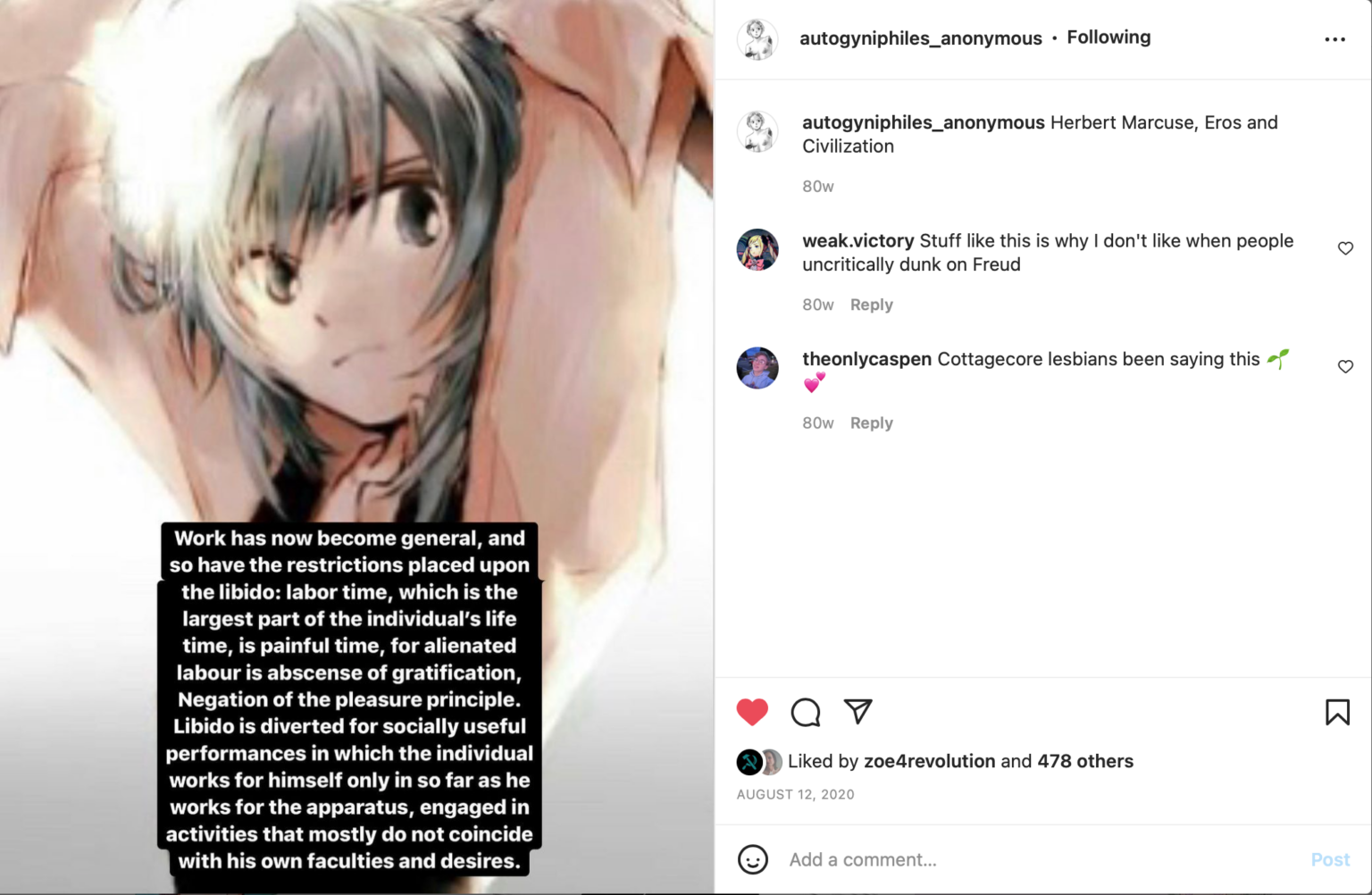
Figure 3: Source: https://www.instagram.com/p/CDydrcwDRS5/
There is the risk of trivialization and monetization of serious content when philosophical and political ideas are popularized. Especially on a platform like Instagram, which is designed to be addictive and promote consumption, one could argue that the content gets diluted in a stream of fashion ads, otter reels, and New Yorker cartoons. There was a similar discourse around the popularization of feminism a few years ago, when artists and brands like Beyonce and Dior were promoting feminism with songs, catchy phrases, and t-shirts. I have not reached a conclusion on that issue. I would argue however that we need correspondence between the different approaches. The Culture and Media theorist McKenzie Wark uses the term “para-academic”8 to describe an academic product that is not quite in the realm of traditional academia but works with its tools or references. I support the use of this term since it does not indicate a hierarchy but a parallel.
The meme as a kaleidoscope
Can a meme offer an extended view or even a different perspective in academic discourse? Can memes broaden our spectrum and disrupt the canon of what we should read and what we should know? On some Theorygram channels you will find a more diverse, queer, intersectional, and postcolonial syllabus than in common academic contexts. The channel @autogyniphiles_anonymous for example is curated by three trans-women who all chose an admin-name based on a theorist they “wanted to bring to the internet youths”9. Their admins are called Marcuse, Harraway and Arendt, but they reference a big variety of theorists. They pair theory quotes with images of “hypersexual anime girls”,10 with whom trans women of this community often identify. The channel offers an intellectual perspective to which I wouldn’t necessarily be exposed in a traditional academic environment.
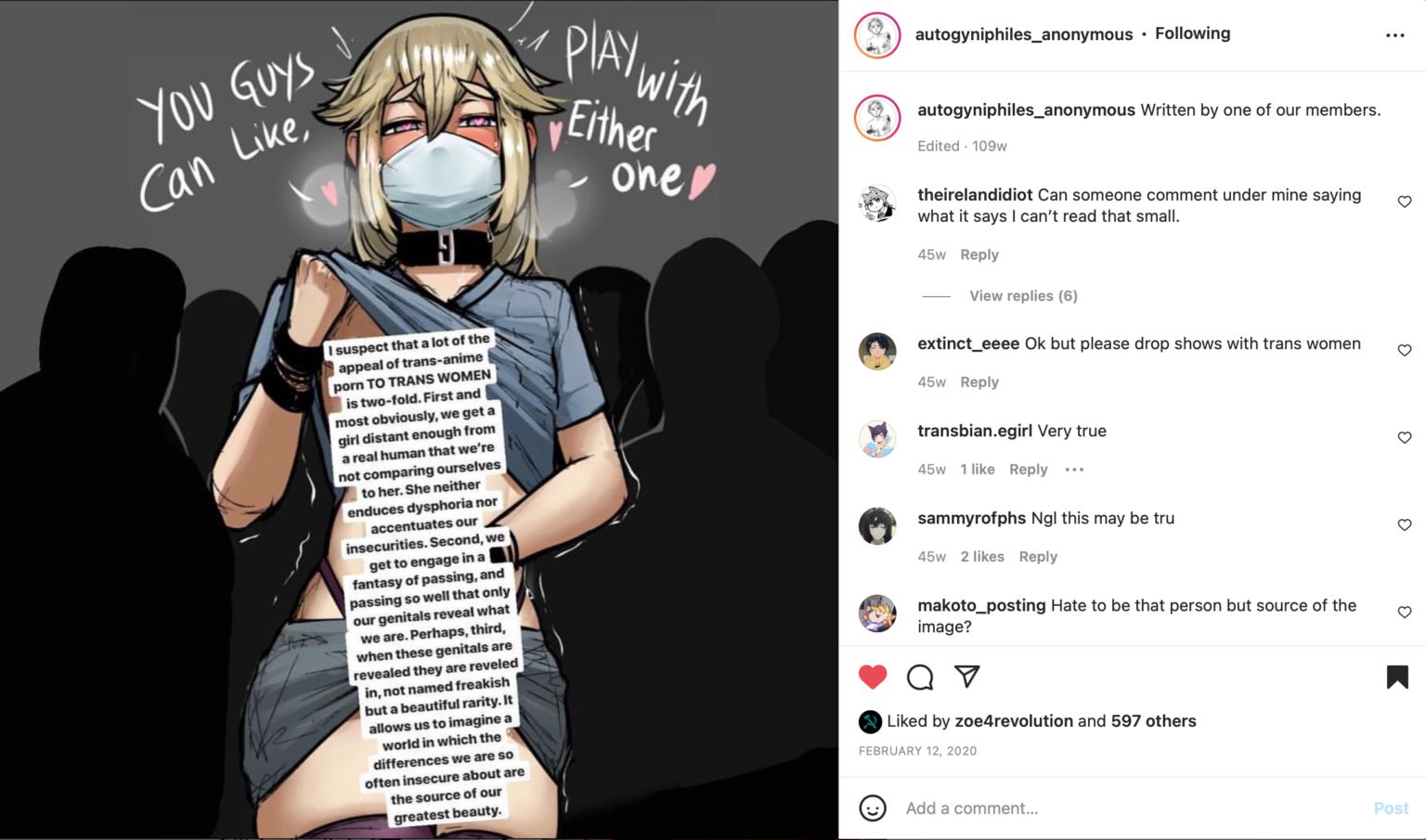
Figure 4: The admins of @autogyniphiles_anonymous also share their valuable personal analyses on the topic of trans theory and culture. The above meme explains the context and relevance of the used anime images. Source: https://www.instagram.com/p/B8essDMle5E/
In an email conversation for the journal CONTENT12 [12] between the Arendt admin and McKenzie Wark, the two of them discussed the potential of online “para-academic” practices. These practices can queer academic conventions and build a collective of LGBTGIA+, BIPoC, disabled or otherwise marginalized and underrepresented scholars. We get more diverse references, and we have access to perspectives on theory from people who might not have access to traditional academia or are silenced in these contexts. Platforms like Instagram are financially and physically (as in geographically) more accessible and therefore more diverse. So Theorygram is not just a space to consume more diverse theory but also a safe space for people to publish their view as their real self.13 The channel @meme_love_you_long_time teaches us an uncompromising, clever view of a young woman of color in academia. It is an intersectional feminist commentary on theory and culture. @meme_love_you_long_time mashes-up the personal, the intellectual, the political and the artistic. It creates an authentic environment for knowledge production and sharing because the material isn’t in a vacuum but exists in a messy blend of references and spaces. It also aims to deconstruct the categories of high and low, private and political or academic and instinctive. The creator works with pop culture images that she enjoys and at the same time critiques by placing her own experiences and her research on top of the images.
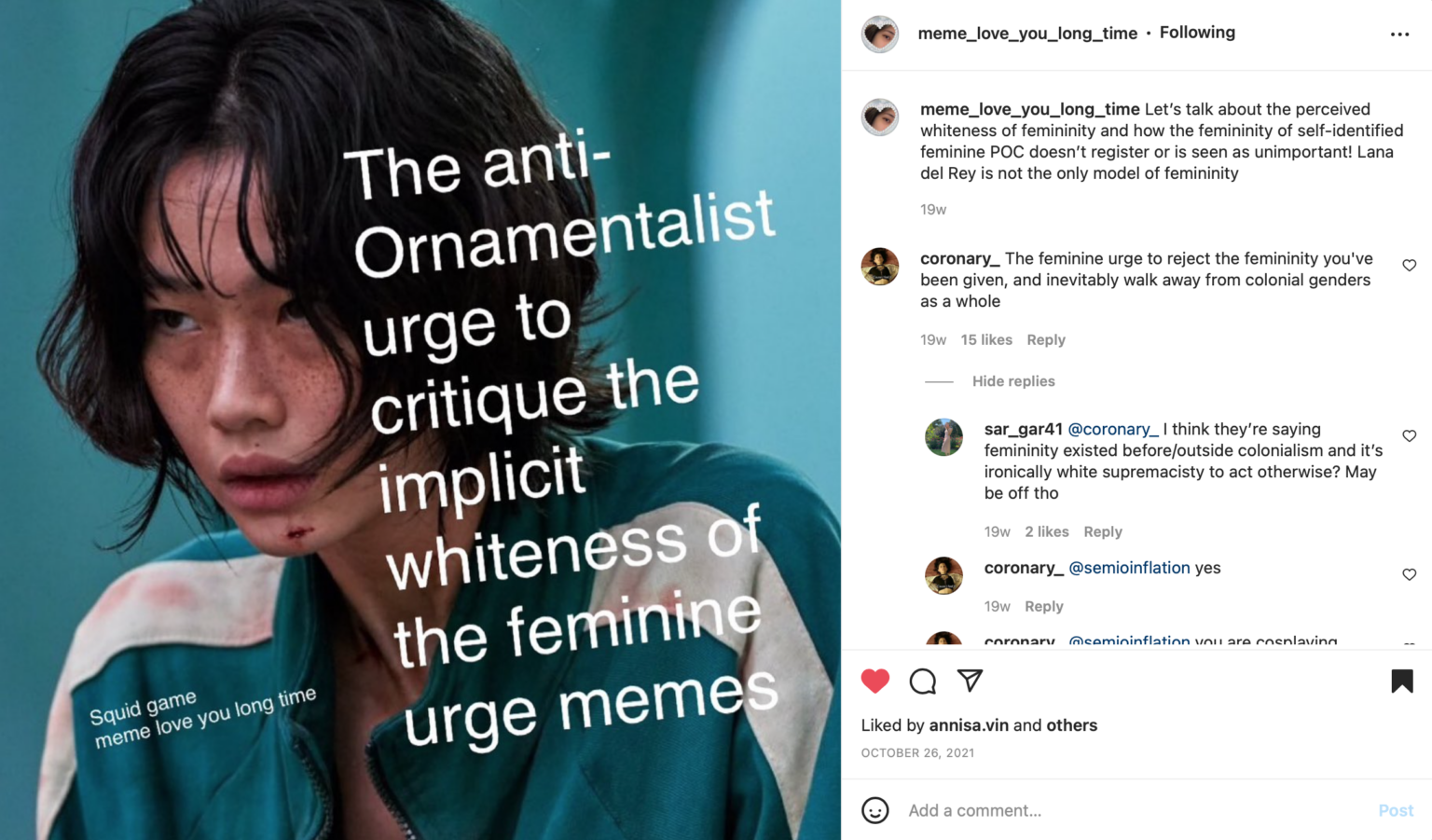
Figure 5: @meme_love_you_long_time deconstructs academic, cultural and in this case memetic tropes through the lens of a woman of color and specifically as an academic and cultural worker. This meme refers to the “The feminine urge to…” format that ridicules stereotypical female personality traits or desires. @meme_love_you_long_time encourages her followers to engage with specific theories, movies and texts Source:. https://www.instagram.com/p/CVgT3vYBkEbaPvkBCCIDxVqrlMHSwgTkzNUcKw0/
The meme as a walking stick
The walking stick supports the hunching, pale scholar. Can memes offer a support system in the daily academic struggle like procrastination, imposter syndrome, and working conditions? Can memes act as tools to unionize?
Failure in academic work often means not being able to concentrate, being depressed because of disillusioning feedback, reading too much, and writing too little or getting sidetracked by an irrelevant task. I reflect a lot on the working conditions of academic and cultural workers and how our relationship with screens, platforms, and our presence (and our avatars) in these spaces influence our ways of working. Discussions with people about distractions and procrastination are omnipresent in my life. Everyone constantly talks about it. “Shit, I got nothing done today. I read four articles on pronouns and changed my email signature.” Channels like @gradschoolsucks display an interesting spectrum of sarcastic jokes, self-help tips, and confession-like posts about the struggles of working as a scholar. The existence of these channels illustrates the need for community structures among scholars. But the danger of online formats like that is that you will easily fall into a rabbit hole of suffering and pessimistic voices.
The collective mockery can help release tension, but does it change the condition itself? Does it empower us to address the issues to the institutions, the professors, or the colleagues? Will professors be on these platforms and see the complaints and struggles of their employees and students? I exchanged some thoughts with the people behind the channel @wdka.teachermemes, a platform for students, by students of Willem de Kooning Academie in Rotterdam. For them their channel not only gives struggling and frustrated peers a platform to report complaints but Instagram in particular works as an amplifier to reach a broader public, even outside the walls of the institution. @wdka.teachermemes use their channel to unionize and politicize.
I recognize the advantage of an accessible and affordable platform like Instagram to amplify voices. But the downside is the corporate
character of the platform, that can be abused by the company, creators, and users. The following meme shows a post from @wdka.teachermemes sharing their outrage about the Willem de Kooning Academie using one of their memes as a promotional joke for an official event. So, the school reacted to the page, but not in the desired way. In 2022 Instagram has transformed into the most important promotional platform for institutions and companies, which affects the community as well as the content.
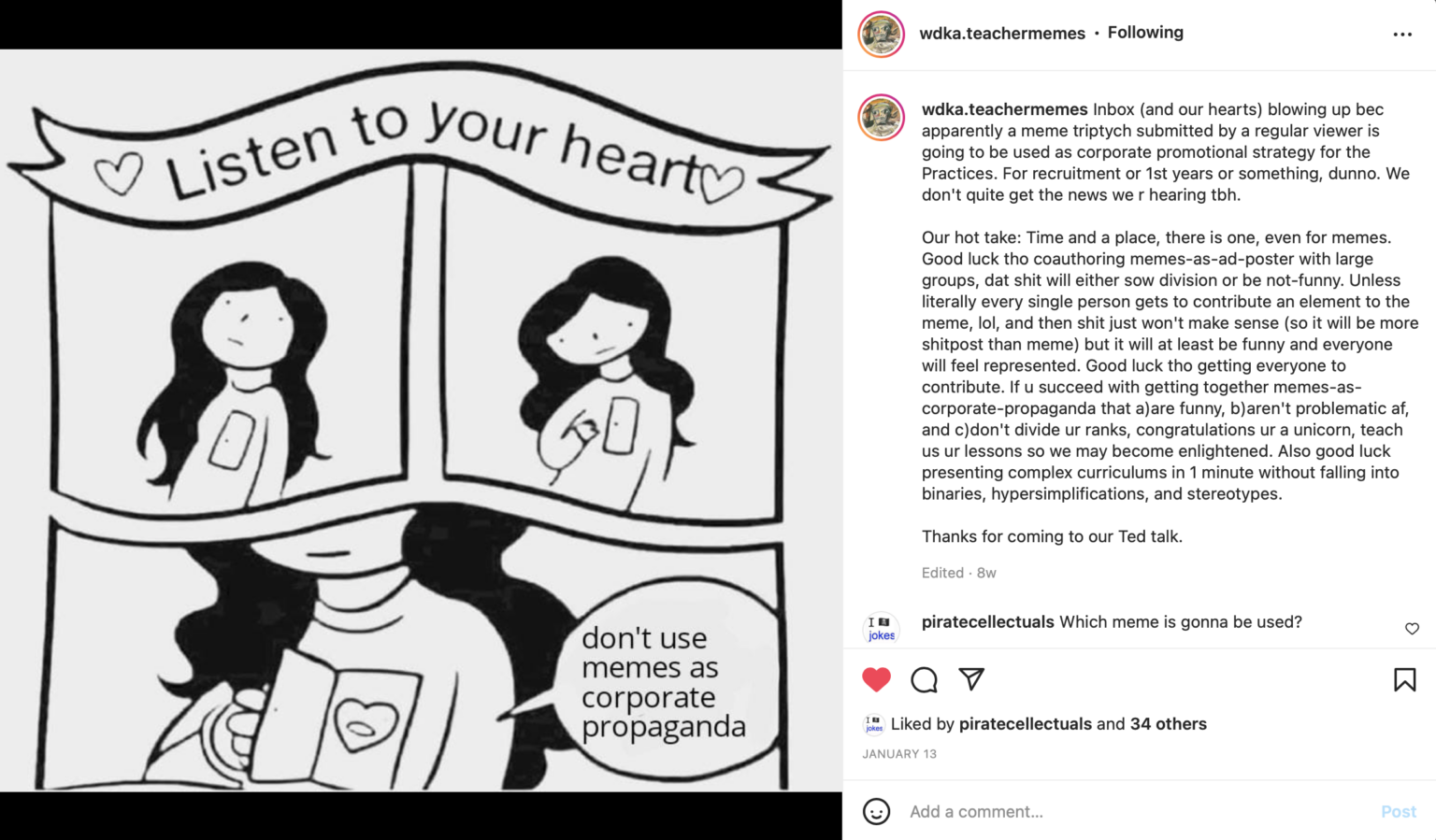
Figure 8: Source: https://www.instagram.com/p/CU_LVsRsBah/
The last category of memes addresses the issue of the preservation of certain academic and cultural canons. What good is it to know that I am not the only one who struggles with A thousand Plateaus by Deleuze and Guattari? And how do you feel if you don’t even know who or what Deleuze and Guattari is? There are thousands of Deleuze and Guattari memes that joke about the illegible texts by the philosopher and psychoanalyst. I had to read some of their work at university and they are constantly referenced in other texts. Yet I have failed at understanding or really liking these texts and it is frustrating to stumble across them everywhere. Seeing the memes or even hearing my professor confessing she too struggled with it at least made me feel less stupid. But in the end the pressure to read and understand remains because the academic community – and Theorygram – continue referencing it without necessarily explaining it. So even if the creator of a meme questions the status quo it immediately reproduces it. We complain about it, but I have come to realize that the only thing that would change the situation in reality would be to come together in a reading group, in a tutorial, or to have professors who take the students’ complaints and struggles seriously and rethink their methods and conventions.
![Figure 9: This “My husband is dead” meme is based on the absurd assumption that this woman would even read Deleuze. It is classist and disrespectful against sex workers since the original image is an ad for an online service. So, this meme addresses people who need someone to explain Deleuze to them and criticize the academic elite while at the same time is looking down on people like the woman in the picture. The writer and curator Legacy Russel explores the problematic implications of memetic material that portraits black bodies. Her research BLACK MEME [15] teaches us to be aware of the background of the source images. Source: https://www.instagram.com/p/Bsi9fjvhsln/](https://cdn.sanity.io/images/eodip22e/production/317462d8c0c7d97aeb7b9d00b5089e1c22705034-1536x764.png)
Figure 9: This “My husband is dead” meme is based on the absurd assumption that this woman would even read Deleuze. It is classist and disrespectful against sex workers since the original image is an ad for an online service. So, this meme addresses people who need someone to explain Deleuze to them and criticize the academic elite while at the same time is looking down on people like the woman in the picture. The writer and curator Legacy Russel explores the problematic implications of memetic material that portraits black bodies. Her research BLACK MEME15 teaches us to be aware of the background of the source images. Source: https://www.instagram.com/p/Bsi9fjvhsln/
Conclusion
I find it fascinating to see what people post, repost, and like on Theorygram and how they engage with theory. I like the broadening of the frame of reference with mashup and remix techniques to share knowledge in a more humorous and impulsive way. Channels like @autogyniphiles_anonymous and @meme_love_you_long_time that represent a more diverse community, highlight the entanglements of the personal, the political, and the intellectual. There I see a lot of potential for what I call a kaleidoscopic effect on theory and research.
In general, I believe Instagram has the function of an amplifier. In the search for support and change of perspective you may end up seeing the same references and negative perspectives. It amplifies cynical voices and popular references in the algorithmic feed. You have to be careful not to fall into a confirmation bias which is one of the dangers of algorithmically structured platforms like Instagram. Instead of feeling empowered it can have a numbing effect. In the end scrolling through meme after meme, from one quote to the other, following more channels every day and seeing all these theoretical and cultural references feels equally overwhelming as reading a book with ten footnotes per page. My conclusion is that the popularization of theory by making it more accessible only works in rare cases. I would rather say it can ignite an interest or spark new ideas.
Para-academic or para-social communities will and should always exist whether on Instagram or other online or offline platforms. But we can use spaces like Theorygram and the medium of the meme as instruments to measure the most critical and prominent concerns that scholars and auto-didactics raise.
I intend to foster and eventually see a more open discourse in academic circles and seminars about working conditions and accessibility issues around the syllabus. The honesty of some creators and people in the comment sections of Theorygram is encouraging. Honesty about who they are, what they understand, and what they don’t, about their fears and frustrations. I want academic institutions to be more autonomous, playful, and safer spaces for knowledge production and discourse. I want academia to care more, to be a sillier and humbler community. As @meme_love_you_long_time proclaims in one of her posts: “Don’t be anti-intellectual, be anti-oppressive structures that prevent intellectualism/education from being accessible.”
Bibliography
Larson, Kyle. “The Subversive Remix Rhetoric of Saved By The Bell Hooks.” Journal of Contemporary Rhetoric (Vol. 7, No.2/3, 2017): 94-103. http://contemporaryrhetoric.com/wp-content/uploads/2017/10/Larson7_2_3_6.pdf (14.03.2022).
Horan, Beatrix. “autogyniphiles_anonymous: Methodological Analysis.” CONTENT, Bard Meme Lab (Vol. 1, 2021): 80-86. Retrieved from https://www.memelab.org/content/content-vol-1 (14.03.2022).
autogyniphiles_anonymous and Wark, McKenzie. “A Conversation with McKenzie Wark & @autogyniphiles_anonymous.” CONTENT, Bard Meme Lab (Vol. 1, 2021): 86-103. Retrieved from https://www.memelab.org/content/content-vol-1 (14.03.2022).
Russell, Legacy. “BLACK MEME.” Video essay 2020, Retrieved from https://www.youtube.com/watch?v=7zWBPVUmhR0&t=4s (14.03.2022).
Instagram Channels, all last visited on 14.03.2022:
autogyniphiles_anonymous: https://www.instagram.com/autogyniphiles_anonymous
gradschoolsucks: https://www.instagram.com/gradschoolsucks
meme_love_you_long_time: https://www.instagram.com/meme_love_you_long_time
philosophy_fix: https://www.instagram.com/philosophy_fix
piratecellectuals: https://www.instagram.com/piratecellectuals
ripannanicolesmith: https://www.instagram.com/ripannanicolesmith
savedbythebellhooks: https://www.instagram.com/savedbythebellhooks
sensitive.libra: https://www.instagram.com/sensitive.libra
wdka.teachermemes: https://www.instagram.com/wdka.teachermemes
Did you get closer to profound procrastination in relation to the deadline of the publication?
I have been working on different versions of this essay for over a year now, and I am writing this answer and finishing my submission two days before my deadline. So, I am still profoundly procrastinating. In the first view months I felt guilty and stressed about my routines and perpetual detours – the back and forth, the too much and too littles, the guilty and the innocent. But the material I was engaging with helped me appreciate my messy entanglements and profound procrastination practice.
There is an interesting culture around auto-didacts on Theorygram and Politigram (the political theory sphere on Instagram) where they are amiably called pseudo-intellectuals (pseuds).
I use the verb to queer to refer to a perspective that analyzes and criticizes the concept of normativity and challenges traditional categories of gender and power relations.
It used to be a Tumblr.
Larson, Kyle. “The Subversive Remix Rhetoric of Saved By The Bell Hooks.” Journal of Contemporary Rhetoric (Vol. 7, No.2/3, 2017): 101.
Arendt admin in: autogyniphiles_anonymous and Wark, McKenzie. “A Conversation with McKenzie Wark & @autogyniphiles_anonymous.” CONTENT, Bard Meme Lab (Vol. 1, 2021): 100.
Larson, Kyle. “The Subversive Remix Rhetoric of Saved By The Bell Hooks.” Journal of Contemporary Rhetoric (Vol. 7, No.2/3, 2017): 96.
Arendt admin in: autogyniphiles_anonymous and Wark, McKenzie. “A Conversation with McKenzie Wark & @autogyniphiles_anonymous.” CONTENT, Bard Meme Lab (Vol. 1, 2021): 100.
McKenzie Wark in: autogyniphiles_anonymous and Wark, McKenzie. “A Conversation with McKenzie Wark & @autogyniphiles_anonymous.” CONTENT, Bard Meme Lab (Vol. 1, 2021): 98.
Arendt admin in: autogyniphiles_anonymous and Wark, McKenzie. “A Conversation with McKenzie Wark & @autogyniphiles_anonymous.” CONTENT, Bard Meme Lab (Vol. 1, 2021): 97.
Arendt admin in: autogyniphiles_anonymous and Wark, McKenzie. “A Conversation with McKenzie Wark & @autogyniphiles_anonymous.” CONTENT, Bard Meme Lab (Vol. 1, 2021): 97.
Horan, Beatrix. “autogyniphiles_anonymous: Methodological Analysis.” CONTENT, Bard Meme Lab (Vol. 1, 2021): 83.
CONTENT, A memetics research journal, Volume I 2021. Bard Meme Lab, provides a space for examining online culture.
Arendt admin talks about her escaping the daily discrimination at her workplace: “I personally was just trying to carve out a space in my day where I could be unabashedly me. Usually I made the memes right after experiencing transphobia, an uncomfortable glance, a mean phrase, even just a simple refusal to acknowledge my presence had me rushing for the washroom to meme.” Arendt admin in: autogyniphiles_anonymous and Wark, McKenzie. “A Conversation with McKenzie Wark & @autogyniphiles_anonymous.” CONTENT, Bard Meme Lab (Vol. 1, 2021): 89.
Self-conducted interview with @wdka.teachermemes, 2022.
Russell, Legacy. “BLACK MEME.” Video essay 2020. https://www.youtube.com/watch?v=7zWBPVUmhR0&t=4s (14.03.22).
Self-conducted interview with @wdka.teachermemes, 2022.
Charlotte Friedli
Charlotte likes to zoom in too closely and is fascinated by stuff she finds online.
